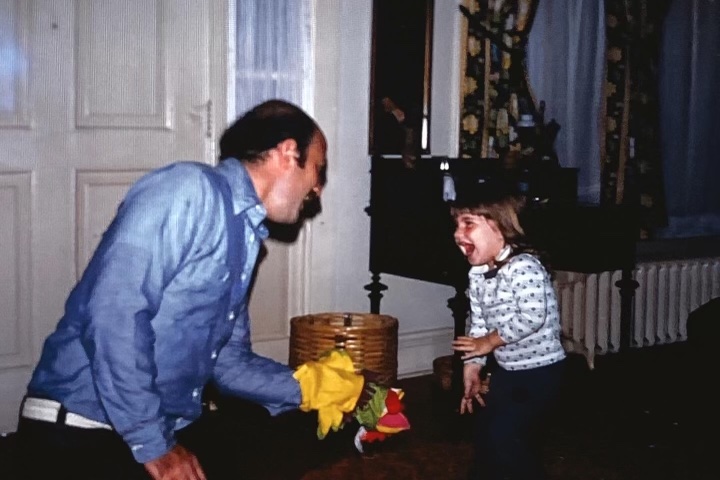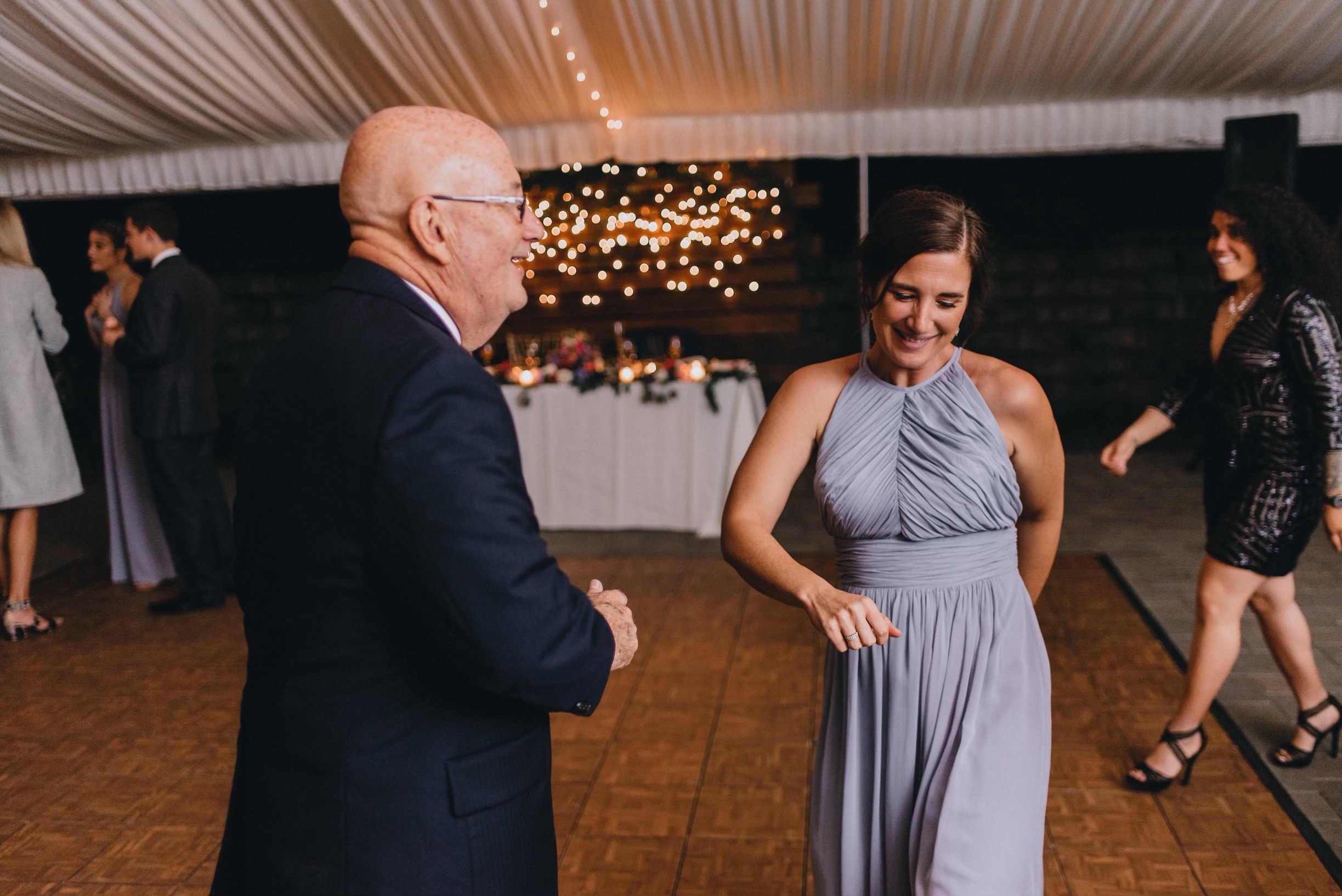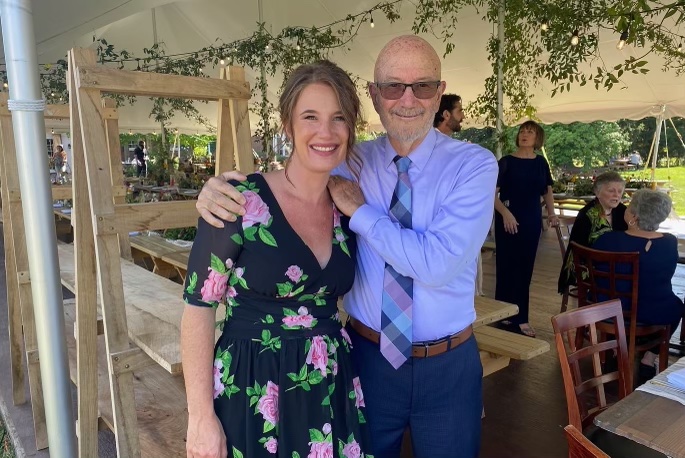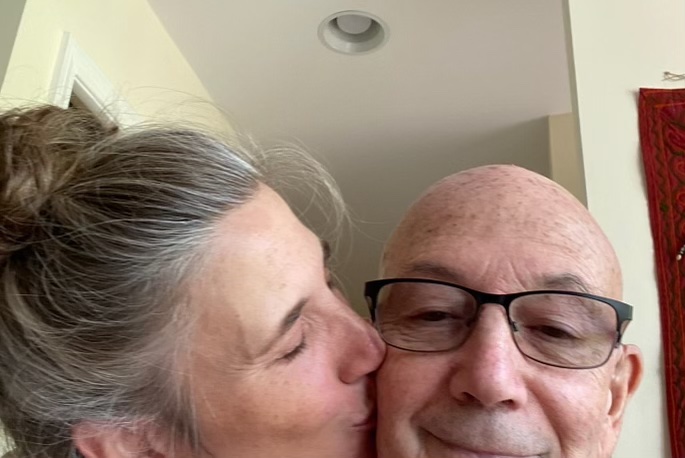(this post was originally published on The Long Grief Journey website)
This year is off to a very raucous and rather painful start. I know I am not alone in feeling this way, but I wanted to share with you what has been happening because it is so relevant to the topic of this site, which is in a word, grief.
Just over three weeks ago, my father died. Six weeks to the day prior to his death, my grandmother died. In a matter of six weeks, my family lost two elders, and the reality of this is continuing to seep into my mind, heart, and bones.
Several people have asked me if the book I wrote with Pamela Blair has helped me deal with my grief. It’s been an interesting thing to think about. Going through the process of losing my dad with my family, I often thought to myself, “my god, I cannot believe how much this hurts.” There were times in the hospital as well as at my dad’s wake when I didn’t feel my feet on the ground. There were times sobs erupted from my body without warning. There was a lot of sleeplessness and anxiety. What I realized was that knowing about grief doesn’t alter the pain of grief. But what it has done for me is to normalize my experience of it and not judge myself for anything. Steeping myself in research on grief and talking with so many people about their experience of it, I see that when we go through grief, we know it. When we listen to people who are suffering without trying to rush them to feel better, we absorb and open our hearts to humanity. We become part of the fabric of our shared experience, and it is textured, layered, real.
Our “culture” is often accused of not doing death and grief right. Collectively, we don’t talk about it enough, we keep it away from us and fear it. We try to outlive death and deny its existence. There is evidence of all of that, for sure. But I can say that going through these last couple of months, I’ve witnessed far more people getting grief than not. At my father’s wake, tons of people came and not one person said anything that made me bristle or think, “wow, they just don’t get it.” Mine and my family’s pain was held, responded to tenderly, and with deep interest and compassion. I wasn’t able to attend my grandmother’s services due to having COVID-19 but I feel sure the same energy was present for my family then.
What I do see in our culture is that capitalism and our bowing at the altar of work is a huge problem. One family member of mine had two unpaid days of bereavement for the death of a close family member. Two unpaid days. What? Is that a joke? Several others’ jobs had policies that were a little better than that and their management was very accommodating given the unbelievable losses affecting our family. But it’s important to know this: federal law does not require organizations or companies to include bereavement leave in their benefits packages. As of April 2023, only five states in the US had bereavement leave laws; three additional states had bereavement legislation efforts in the works. “As the Family and Medical Leave Act stands, bereavement is not an acceptable condition for taking unpaid leave from work.” Time minimums for bereavement leave as well as payment structures vary from state to state (or those five states that have actual bereavement laws). citation
For the rest of the country, it is up to the company or organization to determine their own bereavement policies including whether to have them at all. The typical scenario is three- to five-days leave. Sometimes these days are paid, sometimes not, sometimes a hybrid of the two. The size and financial constraints of companies obviously affect this to some degree. Also important to note, only 56% of the population works for places that even have benefit packages. What do hourly workers or those that are self-employed do when they suffer a loss or a family tragedy?
With this kind of pressure to get back to work, there is an underlying communication which is basically, “get yourself together enough to get back out there”, which for many people following the death of a loved one requires faking it. Big time. Feeling distracted, depressed, exhausted, confused, and vulnerable are very common emotional experiences following a loved one’s death, and having to fake it can make things more difficult for people. In fact, for some this is an added layer of trauma that complicates grief in the years to come.
I feel incredibly fortunate to have been in a position where I could take the time I needed to gather myself back into a place that was fit for work. I continue to be in a place where I can do what I need to do to take care of myself. But I am aware that this is not the case for many people, and that is unacceptable. I think this cultural problem of not “doing grief right” is less a human problem and more a political and economic problem.
In sharing these thoughts with you, I am channeling the energy of my dad. He had strong opinions about politics and policy. I loved talking to him about these kinds of things and often called him to get his opinion on something or his long-view perspective on issues I didn’t fully understand. I’ve gone to call him numerous times in the last couple of weeks, looking to catch up and shoot-the-breeze. I’ll miss doing that so much but hopefully he knows (and I believe he does) that I’ll keep at it and continue to advocate for what I believe in.
And if you’re reading this because you are grieving, you are not alone. I hope you are taking all the chances you can to be tender to yourself and that you hold yourself with all the compassion you would afford another person. ~ Bradie






